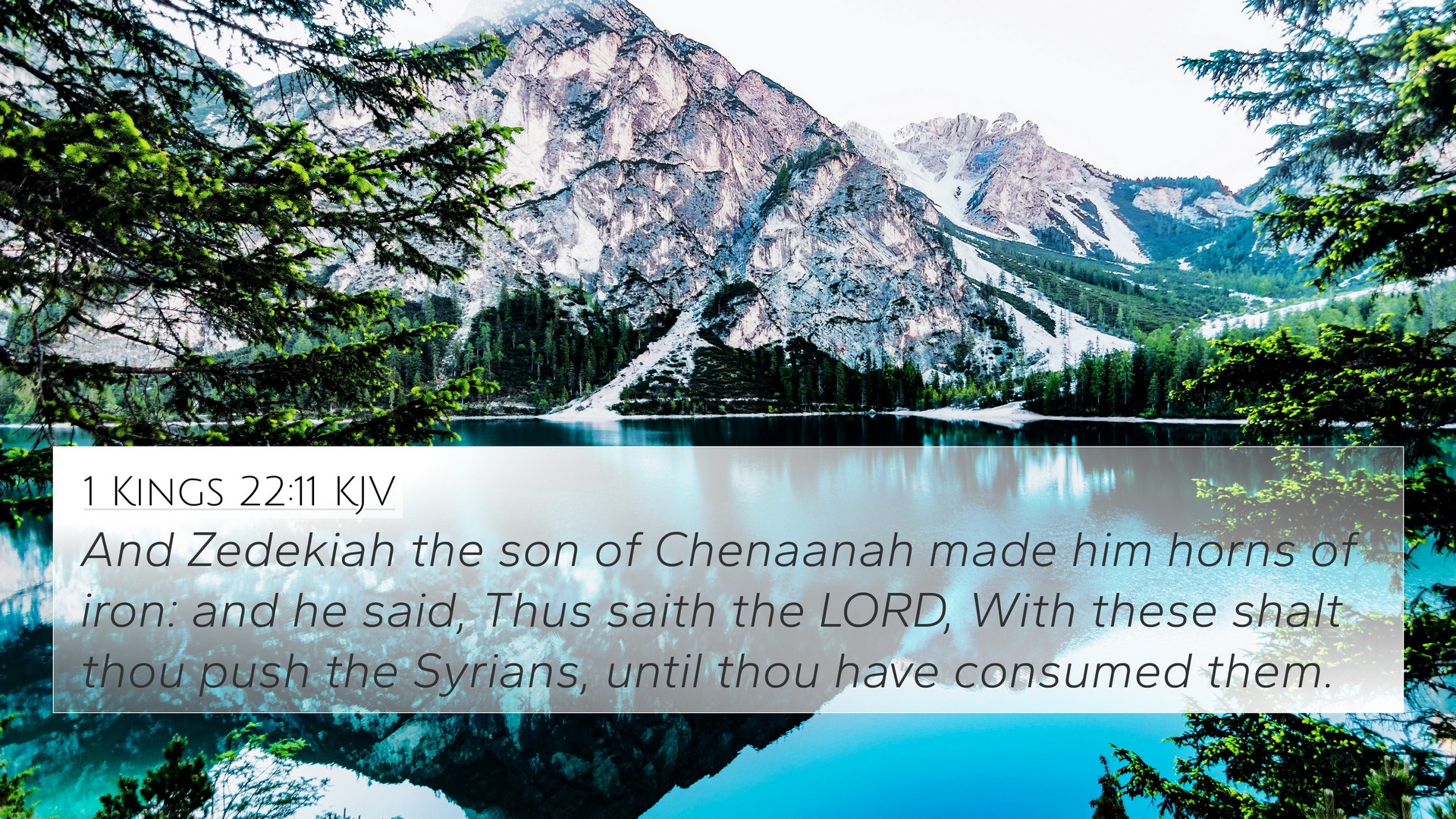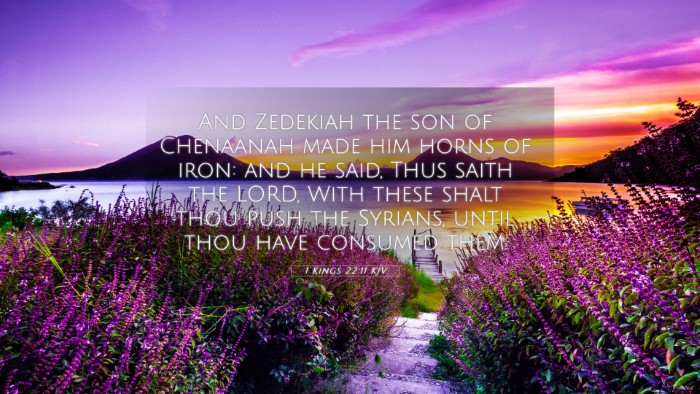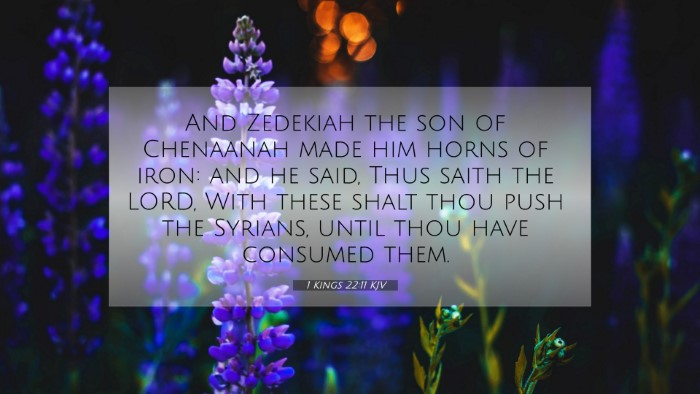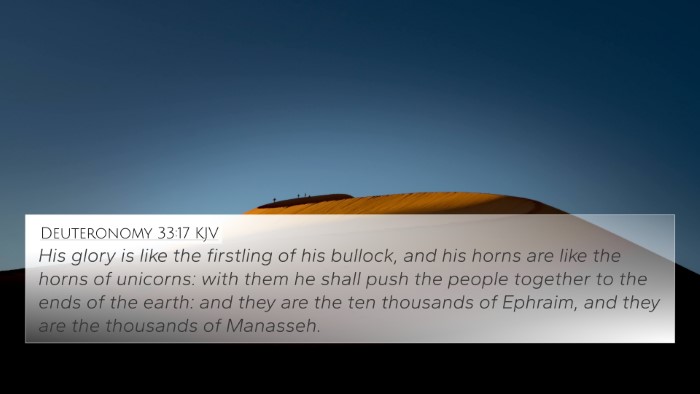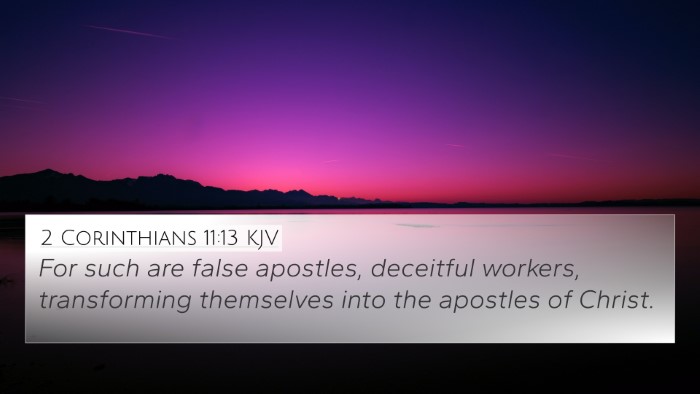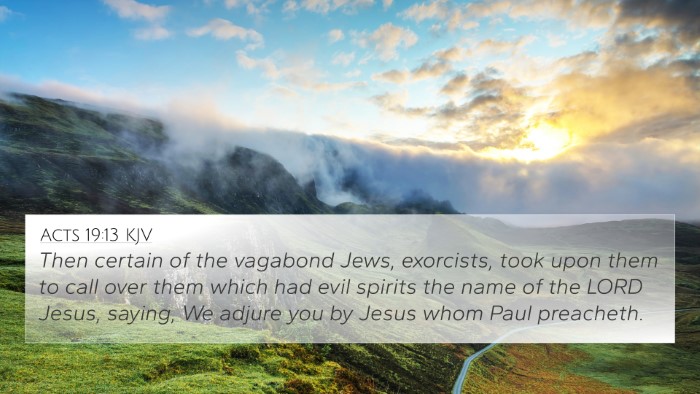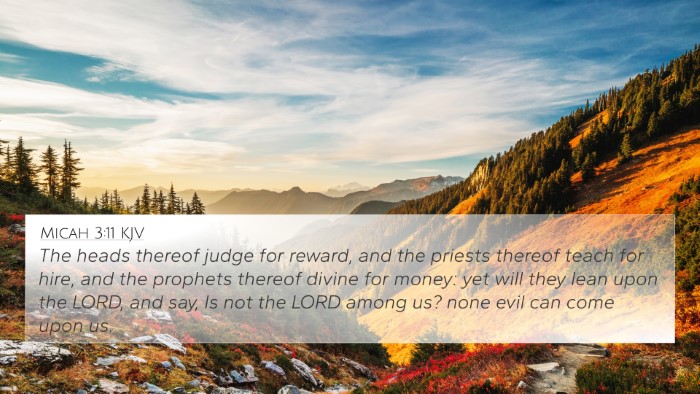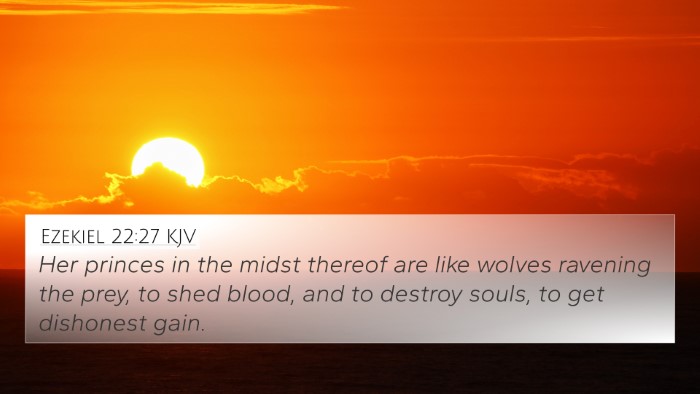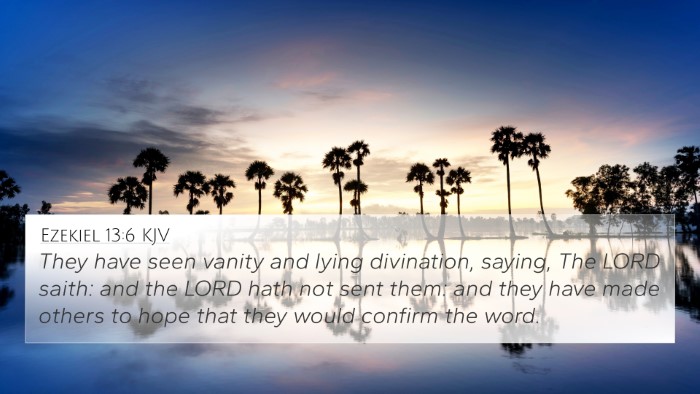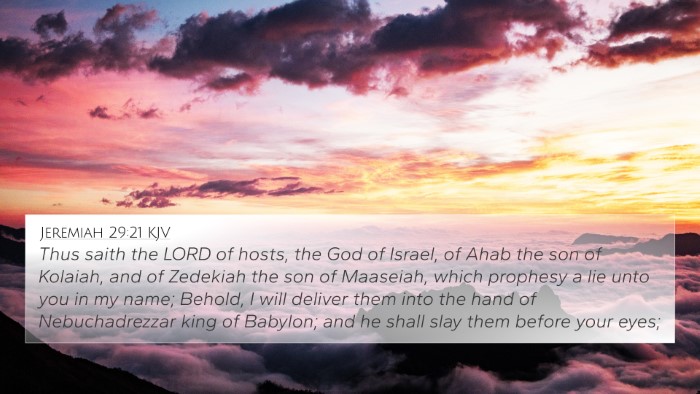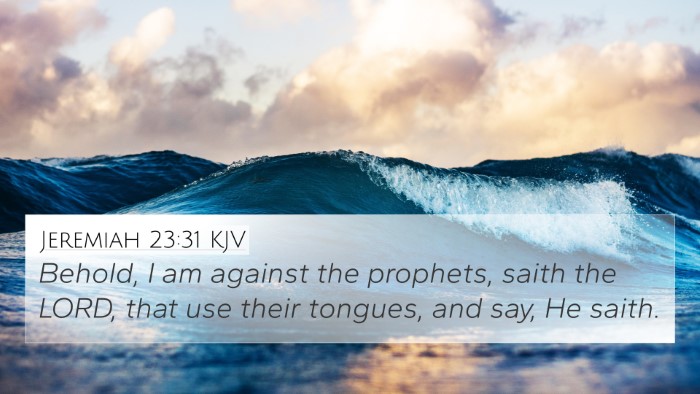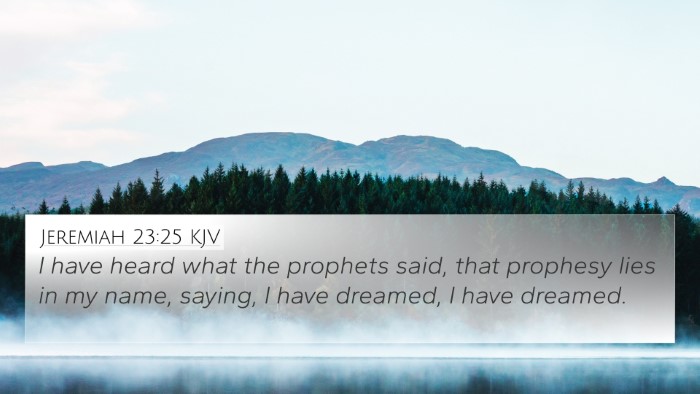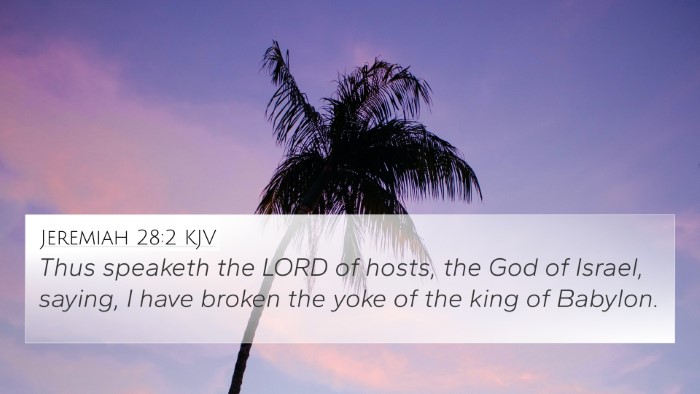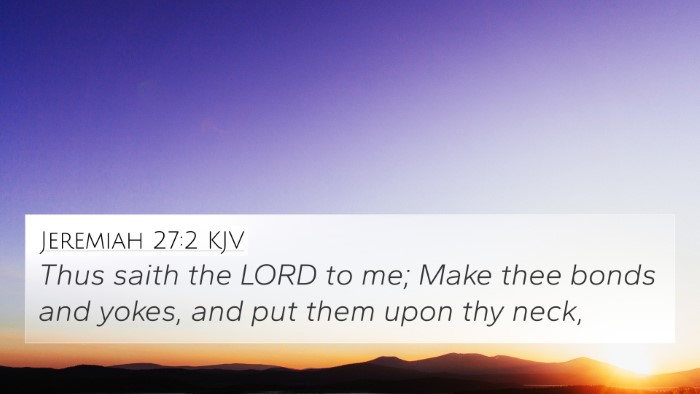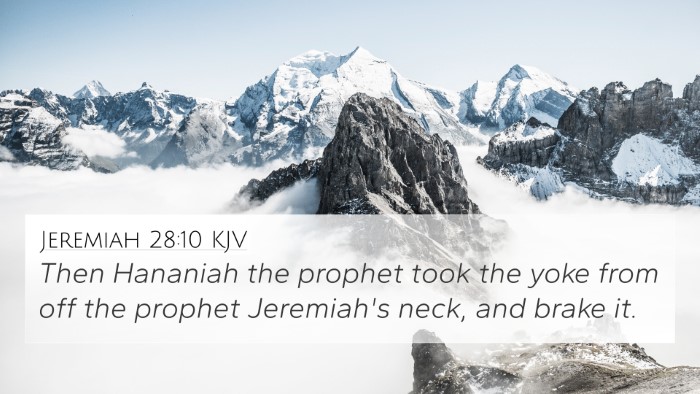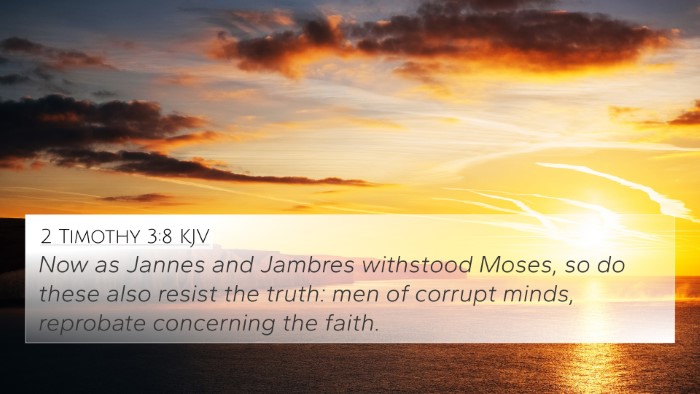Understanding 1 Kings 22:11 - A Detailed Bible Verse Analysis
The verse 1 Kings 22:11 states: "And Zedekiah the son of Chenaanah made him horns of iron: and he said, Thus saith the LORD, With these thou shalt push the Syrians, until thou have consumed them."
Verse Summary
This verse provides a dramatic visualization of Zedekiah's prophetic demonstration, as he uses iron horns to symbolize the impending defeat of Syria, instigated through divine intervention. This moment encapsulates the tension of prophecy and the conflict between divine will and human authority.
Context and Background
The surrounding context features King Ahab of Israel seeking guidance from prophets on whether to engage in battle against Ramoth-gilead. Zedekiah's action represents a bold attempt to illustrate God's power through a visual metaphor, showcasing the common prophetic practice of using symbols to convey spiritual truths.
Commentary Insights
Matthew Henry's Commentary
Matthew Henry emphasizes the significance of symbols in prophecy, noting that Zedekiah's horns were a direct representation of God’s strength. He elaborates that the horns signify God’s ability to empower Israel over its enemies, highlighting the encouragement that prophets provided to royal figures during times of peril. Henry points out the sometimes theatrical entanglement between the prophetic message and royal expectation.
Albert Barnes' Notes
Albert Barnes provides a detailed examination of the symbolic significance of the horns. He states that the act was typical of the prophetic tradition and served to instill confidence in Ahab. Barnes explains that such dramatizations were meant to provoke the audience’s faith and prepare them for forthcoming spiritual realities, keeping in mind that God often used prophets to provide comfort and instruction through tangible actions.
Adam Clarke's Commentary
Adam Clarke notes that Zedekiah’s act was not only superficial but also performed in the spirit of enthusiasm. He remarks that while the visual representation was powerful, it risked being seen merely as a theatrical display, with implications about the integrity of prophetic proclamations. Clarke draws attention to the coercive environment in which true prophets operated, at times being challenged by false prophets like Zedekiah.
Related Bible Cross-References
- 1 Kings 22:6: Ahab seeks counsel from his prophets.
- 2 Chronicles 18:10: Another account of Zedekiah demonstrating the same symbolism.
- Isaiah 54:17: "No weapon that is formed against thee shall prosper," relating to the divine protection of Israel.
- Jeremiah 1:10: God empowers prophets to root out and destroy nations, similar to the image of horns pushing back enemies.
- Micah 4:13: A prophecy concerning the people of Israel being likened to a strong horn.
- Zechariah 1:18-21: Reference to horns representing powers that have scattered Judah.
- Ezekiel 39:17-20: God calls His people to a great feast and victory over their foes.
Thematic Connections
This verse opens avenues for exploring various themes within the Bible, including:
- Divine Sovereignty: The act illustrates God's sovereign authority over nations and kings.
- The Role of Prophets: The chapter emphasizes the role of both true and false prophets in guiding rulers.
- The Battle of Good vs. Evil: The impending conflict serves as a metaphor for the greater spiritual battles occurring throughout scripture.
Practical Implications
The imagery within 1 Kings 22:11 invites readers to consider the weight of prophetic messages, the faith required to trust God’s power in conflict situations, and the importance of discerning true from false guidance in one’s spiritual journey.
Conclusion
1 Kings 22:11 provides a profound example of the intersection of divine instruction and human action, encapsulated in the dramatic portrayal by Zedekiah. By understanding the verse through various commentaries, one can appreciate the depth of meaning conveyed through prophetic symbolism and its application in a broader scriptural context.
